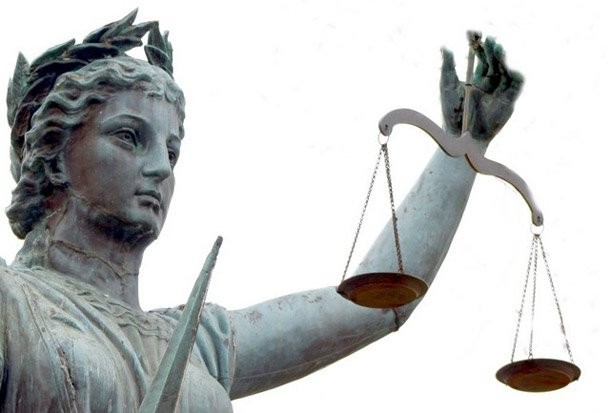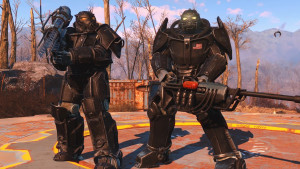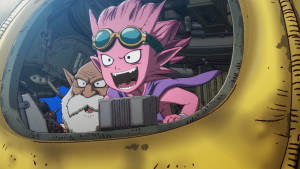Please support Game Informer. Print magazine subscriptions are less than $2 per issue
Getting The Legal Lowdown On Yesterday's Lawsuits

Yesterday was a big day for video game lawsuits. Uniloc started suing Sony and Activision for copyright infringement. Six thousand players are suing Electronic Arts for using their unauthorized likenesses in Madden NFL 09. And Microsoft won its patent infringement suit regarding Xbox Live service. It’s almost too much for a layman to take in all at once. How important are these legal battles anyway? We tapped GI’s own legal expert, intellectual property attorney Eric Chad of Merchant & Gould, for the quick and dirty explanation about each case. Why should you care? Let’s find out.
Uniloc v. Sony, Activision, et al.
“Uniloc is very protective of its patent rights. Some might call them ‘litigation happy.’ Some have accused Uniloc of being a patent holding company (sometimes negatively referred to as a "patent troll") that owns a patent and doesn't actually practice (use or make) the invention claimed in the patent, but has a business model of suing people for infringing its patent and getting substantial settlements or damages awards. Legally, there's nothing wrong with this (though there have been attempts to enact legislation preventing this practice), but it rubs a lot of people the wrong way. Uniloc has denied this charge.
Anyway, the plaintiff (Uniloc) claims that Sony, Activision, and others have infringed its patent by using certain software-registration and other copyright protection systems and methods. Uniloc will likely say that there are hundreds of millions of dollars at stake, just like it did when it sued Microsoft using similar claims. The defendants will likely argue that the stakes are much lower, in the area of a few million dollars.
Uniloc's complaint doesn't have a lot of details, so it's hard to determine how strong its case is, but if the previous Uniloc v. Microsoft case is any indication, the case likely has enough merit to get to trial if the parties don't settle. In the Microsoft case, the claims went to trial and Uniloc obtained a jury verdict and a damages award of nearly $400 million, but the court overturned the jury's verdict. There's no reason to believe that Uniloc's claims are any less valid in this case.”
Davis v. Electronic Arts
“Davis is suing Electronic Arts on behalf of himself and a purported class of similarly-situated retired NFL players that have allegedly had their likenesses misappropriated by Madden 2009. Though the plaintiff (Davis) filed his complaint in federal court, his claims are based on California law. This is particularly problematic to EA, as California has very strong laws to prevent the misappropriation of likenesses to protect the rights of celebrities.
Basically, Davis (and the class of 6,000 retired NFL players) claims that EA has misappropriated the likeness of retired players by including unnamed players on ‘historical’ teams that have different numbers, but nearly identical attributes (height, weight, skill) as the retired players. Davis argues that EA needed a license from the NFLPA like the one EA gets to use the names and likenesses of active NFL players. The stakes are pretty substantial. Rumor is that EA pays over $20 million each year for the license it has for active players. I would guess that Davis wants at least that (not for him alone, but for the class as a whole).
It's hard to say how likely Davis is to prevail. As I said, California has pretty strong laws in this area, which weighs in favor of Davis. Basically, if a person is recognizable from the product, they likely have a viable claim. It seems like Madden 2009 meets this test (I haven't played it, but if the allegations in the complaint are true, then the test would be met easily). On the other hand, EA has faced similar lawsuits from other retired players (Jim Brown) as well as college players based on the NCAA Football franchise. Those other lawsuits, while not dead, have not been particularly successful for the plaintiffs.”
Hochstein v. Microsoft
“This case is actually over (well, the plaintiff could appeal). The plaintiff (Hochstein) sued Microsoft for infringing its patent with XBox Live. The patent claimed an apparatus and method for connecting to video games remotely through an electrical connection. The case basically boiled down to whether connections that don't run through wires but rather through electromagnetic induction (for example, radio waves) were ‘electrical connections’ as described in the patent.
The court found that, as used in the patent, ‘electrical connections’ did not include connections by electromagnetic induction but required a wired connection. Apparently, there was no dispute that XBox Live does not work solely through a wired connection, and the Court found that Hochstein could not make a legitimate infringement claim based on this interpretation. Though the case is over at the district court level for now, I wouldn't be surprised if the plaintiff appeals.”










